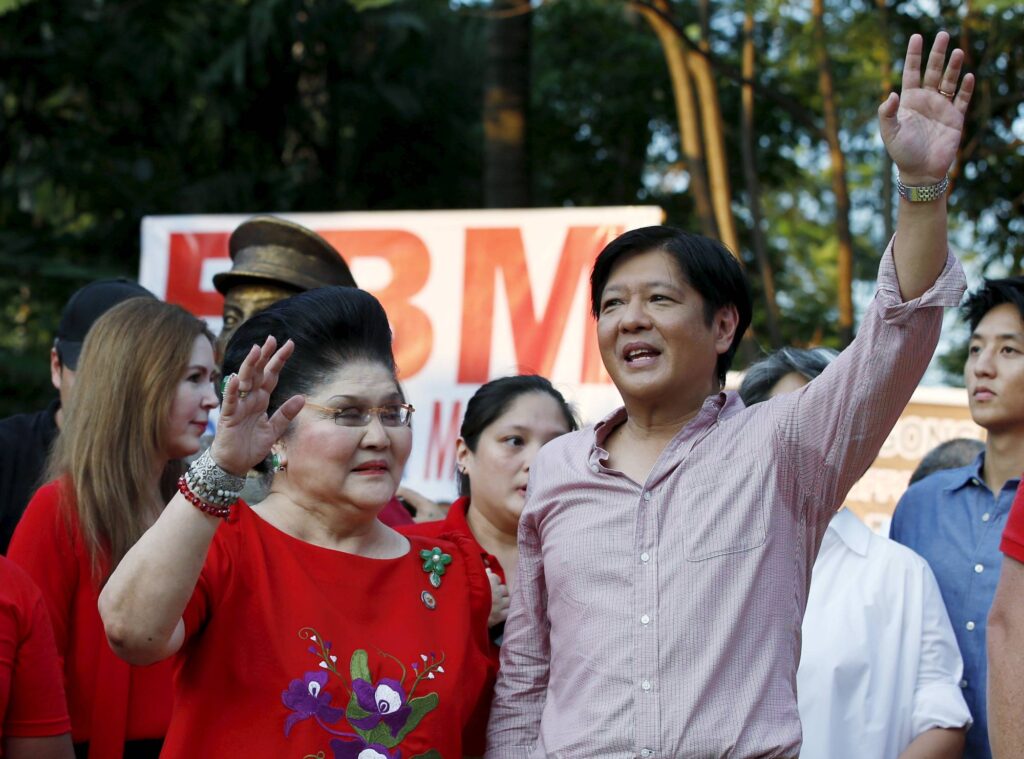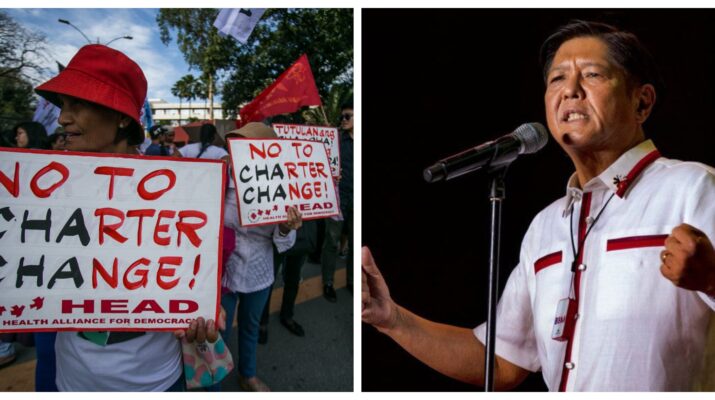Despite the litany of woes Filipinos are currently experiencing, the administration of President Bongbong Marcos has chosen to prioritise a needless effort to replace the current Constitution instead.
Since the start of the new year, an astroturf organisation calling themselves the People’s Initiative for Modernization and Reform Action (PIRMA) have been sponsoring paid television ads pushing for a replacement of the current 1987 Constitution which the ad says is “unfair” to working-class Filipinos.
There should be no speculation that this group is organised and funded by supporters of President Marcos, who himself has made repealing the 1987 Constitution – which was instituted after the ousting of his father as president in the late 80’s by popular revolt – a cornerstone of his 2022 presidential campaign.

Marcos Jr. contested that election with the Partido Federal ng Pilipinas (Eng: “Federalist Party of the Philippines”), which sought to transition the Philippines to a federal form of government from the current constitutional republic. The argument is also that a shift to federalism would resolve the country’s reputation as an economic laggard, that would eventually trickle down leading Filipinos to prosper themselves.
Indeed, the Marcos government’s campaign to change the constitution is being tipped as an “economic charter change” designed to ameliorate the economic conditions of every day Filipinos. Yet by all accounts, the proposed changes offer no solutions to address the most pressing concerns that ordinary Filipinos have.
Last month, rice inflation in the country peaked to its highest level in 15 years – as the cost of the Filipino staple reached its highest since 2009. The skyrocketing prices are caused by adverse weather conditions resulting in lower farm output as well as rising oil prices worldwide, two issues which find no remedies in Marcos’ proposed constitutional change.
The upward trend of food prices have also pushed the broader inflation rate in the Philippines higher, with February’s 3.4 per cent much faster than the 2.8 per cent recorded in January. This has led to many Filipinos feeling the pinch in their pockets, already being beleaguered by rising unemployment and severe power shortages.

Rather than making life better for the ordinary Filipino, Marcos’ charter change caters more towards liberalizing the Philippine economy in a bid to be more “attractive” to foreign investors. This despite the Philippines already having among the most liberal economies in Southeast Asia.
In summary, the campaign to replace the 1987 Constitution does nothing to alleviate ordinary Filipinos’ concerns. It is a vainglorious exercise designed to fabricate a makeshift legacy for Marcos Jr., who continues to struggle in his father’s shadow, as well as to appease the Marcos family’s wealthy backers as well.
It must be noted that there are fundamental flaws with the 1987 Constitution that hinder prosperity among Filipinos, but the Marcos administration’s crusade to replace this with their own constitution is not meant to address those same concerns – in fact, they could even exacerbate the economic problems caused by the current framework.
Thanks to a large supermajority in both Houses of Congress brought by a 2022 election campaign wrought with disinformation and defective vote counting machines (VCMs), President Marcos’ push for a new constitution looks to prosper. The Filipino people must view this critically and scrutinize this blatant attempt to open up the economy more for the sake of making the already wealthy, even wealthier.

